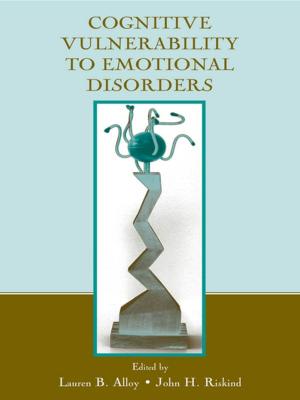| Author: | Niel Micklem | ISBN: | 9781134807062 |
| Publisher: | Taylor and Francis | Publication: | September 2, 2003 |
| Imprint: | Routledge | Language: | English |
| Author: | Niel Micklem |
| ISBN: | 9781134807062 |
| Publisher: | Taylor and Francis |
| Publication: | September 2, 2003 |
| Imprint: | Routledge |
| Language: | English |
Hysteria was a frequently diagnosed illness in the West through the nineteenth and much of the twentieth century. Today the medical profession has virtually abandoned the diagnosis altogether. However, this does not mean that hysteria has ceased to exist.
In The Nature of Hysteria, Niel Micklem argues that the disease has merely shifted into other personal and collective forms. He traces the history of hysteria from ancient Egyptian times to the present and examines its mythic background. He also describes the involvement of sexuality in the clinical manifestations of hysteria to witchcraft, and various collective manifestations of hysteria in the form of sexual permissiveness and unisexual behaviour. Arguing that hysteria is much more than an illness, Niel Micklem suggests that the denial of hysteria in individual patients has coincided with the creation of an increasingly hysterical society.
Hysteria was a frequently diagnosed illness in the West through the nineteenth and much of the twentieth century. Today the medical profession has virtually abandoned the diagnosis altogether. However, this does not mean that hysteria has ceased to exist.
In The Nature of Hysteria, Niel Micklem argues that the disease has merely shifted into other personal and collective forms. He traces the history of hysteria from ancient Egyptian times to the present and examines its mythic background. He also describes the involvement of sexuality in the clinical manifestations of hysteria to witchcraft, and various collective manifestations of hysteria in the form of sexual permissiveness and unisexual behaviour. Arguing that hysteria is much more than an illness, Niel Micklem suggests that the denial of hysteria in individual patients has coincided with the creation of an increasingly hysterical society.















